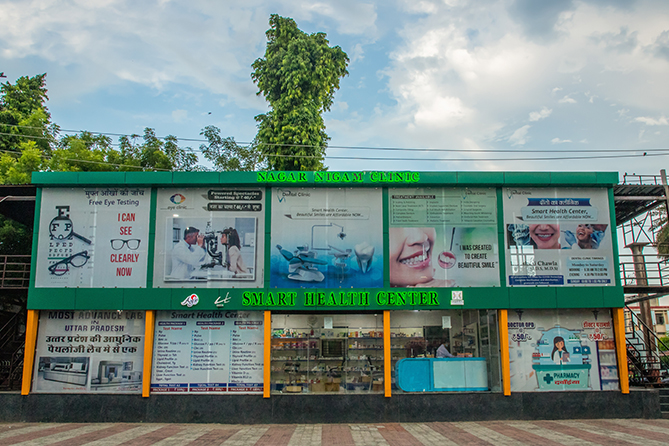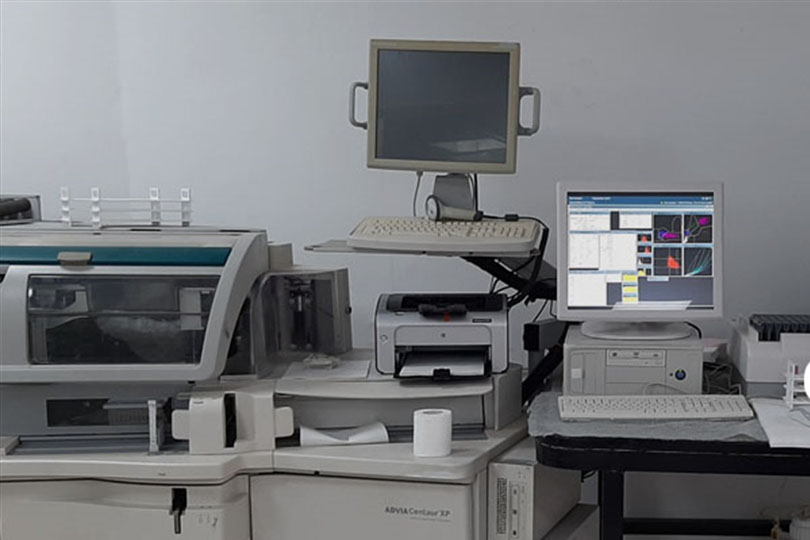Smart Health Centres
Smart Health Centres



SMART AGRA
Smart Cities Mission is an urban renewal, retrofitting, and extension program of the Government of India launched in 2015 with the mission of improving the infrastructure and quality of living offered by cities.
Compared to a rural household, an urban household spends 5 times more on diagnostics, 2.6 times more on medicines and 2.4 times more on doctors’ fees. Therefore, reducing high OOPE incurred by urban residents, especially the slum dwellers, leads to more inclusive cities.
The strategy of Smart Health is based on the providing cheaper doctor consultation, reasonably priced medicines and affordable diagnostics.
The country has undertaken major reforms in the health sector in the recent years. The rapid increase in quantum of public funding for the sector and operationalization of decentralized innovations has substantially altered the treatment seeking behaviour of communities in favour of public health facilities. Major reforms have simultaneously been undertaken to improve the health infrastructure, health human resources, drugs and diagnostics and referral transport options.
In India, there is an opportunity for deploying IT to disseminate health information and present greater health choices before the citizens and help improve health status of the people.
This is where the Smart Health Centers (SHCs) comes into the picture. The project under implementation will utilize IT-enabled protocols for improving access to health-related information and services so as to improve the quality of life of citizens.
In Agra, under Smart City Initiative we have embarked upon an initiative of
Swasth Swacch aur Smart Agra
This in line with Mahatma Gandhi’s saying that – “It is Health that is real wealth and not pieces of gold and Silver”
Through this initiative we are aiming to set up 10 Smart Heath Centres which will provide 72 diagnostic services at CGHS rates and these health centres will have a pharmacy which will sell medicines at subsidised rates ( Certain drugs even lesser than Jan Oushadhi rates) These SHCs just like any other Primary Healthcare Centre (PHC) would provide access to physician, pharmacy and diagnostics.
However significant difference would be in patient experience and overall operating principle.- here, unlike PHC, the patient or the visitor would be greeted by an automated health kiosk. This Kiosk will have facilities to perform immediate diagnosis that the patient wishes to undertake or else will have the option to connect the patient/visitor to the Doctor (via Tele Conferencing).
In this setup the Doctor can attend to more than one patient at different location and the turnaround time for getting results from Diagnostic tests ranges from within a fraction of a second to a few minutes, unlike the traditional diagnosis or tests which used to take time ranging from a few hours to few days.
The patient can also get the prescribed medicines from the pharmacy in the same premises installed next to Kiosk (also a part of the same SHC). The prime focus is always on promoting generic drugs. The pharmacy will have stock of 40% generic drugs, 50 % Branded medicines and 10% Ayurveda and other health products for sale at nominal cost.
Daily target of attending the patient in each center would be 50. In that case total patient to be screened and benefited in 10 centers in 1 year would be approx. 1.5 lakh patients Major outcome is expanding the reach of affordable and quality health care to citizens of Agra and through the distribution of Smart Health cards citizens and their doctors can access health record at the click of a button anywhere in the country
Smart Health Cards will be distributed to citizens, and also based on the number of citizens availing services from SHC and buying medicines at subsidised rate from these centres.
This is Agra’s Ek Kadam Swasth Shahar Ke liye to provide Affordable Health Care to citizens of Agra.
